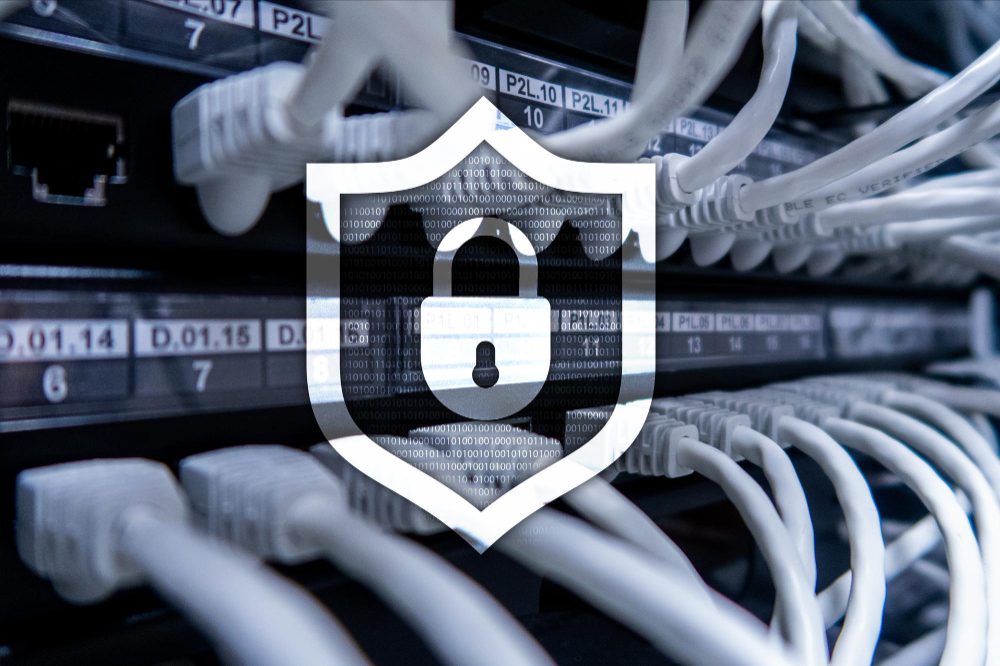Network security solutions protect systems from attacks and unauthorized access. Businesses use these solutions to protect communications, transactions, and information. Security measures include hardware, software, and protocols that work together to detect and block threats.
A strong security framework ensures data integrity and compliance with industry standards. Without proper security, networks remain vulnerable to cybercriminals. Implementing effective security solutions can reduce risk and increase system reliability.
What Are Network Security Solutions?

Network security solutions are tools and practices that protect networks from cyber threats. These solutions include firewalls, anti-malware software, encryption, and access control. These solutions detect, prevent, and respond to unauthorized access, data breaches, and cyberattacks. Network security ensures secure communication between devices, users, and applications.
Businesses use these solutions to protect customer data, financial records, and intellectual property. Security measures help organizations comply with regulations and industry standards. Systems without network security will remain vulnerable to hacking, malware, and data leakage. A robust security solution can protect operations and maintain the Trust of customers and stakeholders.
How does network security work?
Network security works by identifying threats, blocking attacks, and controlling access. Firewalls filter incoming and outgoing traffic based on security rules. Anti-malware software detects and removes malicious programs. Encryption scrambles data to protect it from unauthorized access. Access control ensures that only authorized users can enter the system: security monitoring tools track network activity and alert administrators to suspicious behavior.
Intrusion prevention systems block malicious traffic in real time. Virtual Private Networks (VPN) encrypt online communications for secure remote access. Security policies define acceptable usage and response strategies. Together, these elements create a multi-layered defence against cyber threats.
How do I benefit from network security?

Network security protects data from theft, corruption, and unauthorized access. It ensures secure communications and transactions. Businesses can reduce the risk of financial loss due to cyberattacks. Strong security measures can prevent downtime and keep operations running smoothly.
Compliance with security standards helps avoid legal penalties.
Customers trust companies that protect their information. Employees work safely, whether in the office or remotely. Security solutions protect against malware, phishing, and data breaches.
Regular updates keep systems resilient to emerging threats. Investing in network security improves business stability and reputation. A secure network is critical to business success.
Essential Devices For Securing Network Infrastructure
Wi-Fi access points (AP)
Wi-Fi access points provide wireless connectivity for users and devices. They manage network traffic and enforce security policies. Modern APs support encryption protocols such as WPA3 to protect data.
Businesses use multiple APs to extend coverage and maintain a strong connection. Secure access points prevent unauthorized users from connecting. They help monitor network activity and detect unusual behavior.
APs support guest networks with separate access permissions. Enterprise APs include features such as VLAN segmentation to enhance security. Regular updates and patches increase protection against vulnerabilities. Secure Wi-Fi access points are critical to business network security.
Ethernet switches
Ethernet switches connect devices in a network and manage data traffic. These switches direct data packets to the correct destination to ensure efficient communication. Managed switches allow administrators to set security policies and monitor traffic.
VLAN support helps to segment the network, reducing exposure to threats. Quality of Service (QoS) settings prioritize critical applications. Advanced switches include encryption and access control features. Port security limits unauthorized device connections.
Switch with Power over Ethernet (PoE) simplifies device installation. Regular firmware updates address security vulnerabilities. Secure switches improve network stability and protect connected devices.
Gateways
Gateways connect different networks and enforce security rules. Gateways filter traffic between internal and external networks. Secure gateways include firewalls and intrusion prevention systems. They block malicious traffic and prevent unauthorized access.
Encrypted connections protect data moving between networks. Businesses use gateways to connect branch offices securely. Cloud-based gateways provide scalable security for remote users.
Gateways support VPN for secure remote access. Network administrators configure gateways to enforce security policies. Regular updates keep the gateway protected from cyber threats. A secure gateway is critical to network integrity and protection.
Considerations for Evaluating Network Security Solutions

Requirements Mapping
Businesses must identify security needs before selecting a solution. They assess network size, user access requirements, and regulatory obligations. Security policies define acceptable use and risk tolerance.
Businesses evaluate current security weaknesses and potential threats.
Cloud, hybrid, and on-premises networks require different protections. Compliance with industry standards influences solution choice. Organizations need scalable solutions to support growth.
Network architecture determines security tool compatibility. Security teams collaborate with IT to define objectives. Requirements mapping ensures the business selects appropriate security measures.
Features and Functions
An effective network security solution offers essential features. Firewalls filter traffic and prevent unauthorized access. Anti-malware software detects and removes malicious programs. VPN encrypts data for secure remote access. Intrusion prevention systems block cyberattacks in real time.
Data loss prevention tools monitor and control sensitive information. Zero Trust solutions enforce strict access control. Multi-factor authentication adds an extra layer of security. Security monitoring tools provide real-time alerts. Automatic updates patch vulnerabilities. Robust security features protect business operations.
Budget
Businesses must strike a balance between cost and security needs. Basic security tools offer essential protection at a low cost. Advanced solutions provide stronger defenses but require a higher investment. Subscription-based services offer flexible pricing.
Hardware security devices require upfront investment and maintenance. Free security devices may lack enterprise-level features. Cloud-based solutions evolve as the business grows.
Security spending prevents financial losses due to cyberattacks. Organizations compare vendors to find cost-effective solutions. Total costs include licenses, maintenance, and staff training. Budget planning ensures effective security investments.
Types of Network Security Solutions
Firewalls
Firewalls control incoming and outgoing network traffic based on security rules. Firewalls prevent unauthorized access and block malicious data packets. Businesses use firewalls to create a barrier between internal networks and external threats.
Hardware firewalls protect the entire network, while software firewalls secure individual devices. Advanced firewalls include deep packet inspection and application filtering.
Firewalls help enforce security policies and prevent data leakage. Regular updates strengthen protection against emerging threats. Firewalls are a fundamental part of network security.
Anti-malware software
Anti-malware software detects, removes, and prevents malicious programs. The software protects the system from viruses, ransomware, spyware, and other threats. Real-time scanning identifies and blocks malicious files.
Behavioral analysis detects unusual activity and stops attacks. Regular updates keep the software effective against new threats. The company uses anti-malware tools to protect sensitive data.
Endpoint protection plans include anti-malware as a core feature. Cloud-based anti-malware solutions provide centralized security management. Strong anti-malware protection reduces the risk of cyberattacks.
Virtual Private Networks
Virtual Private Networks encrypt internet connections to protect data during transmission. Businesses use VPNs to secure remote access for employees. VPNs prevent unauthorized interception of sensitive information. VPNs create a secure tunnel between devices and the corporate network.
Businesses use site-to-site VPN for secure branch office connectivity. Remote workers use VPN clients to access company resources securely. VPNs help protect data from hackers and surveillance.
Organizations choose between hardware, software, and cloud-based VPNs. Strong encryption protocols enhance data security. VPNs are essential for secure remote work and safe online activities.
Zero Trust Networking Solutions
Zero Trust security requires authentication for all users and devices. It assumes that no one is automatically trusted on or off the network. Businesses verify identity before granting access to systems and data.
Multi-factor authentication strengthens identity verification. Network segmentation limits access to critical resources. Continuous monitoring detects unusual activity and security breaches. Zero Trust reduces the risk of insider threats and external attacks.
Organizations implement Zero Trust using policies, encryption, and authentication tools. This approach improves access control and protects sensitive data. Zero Trust improves overall security by implementing strict verification rules.
Frequently Asked Questions
Which network security is best?
The best security depends on business needs. Firewall, anti-malware, VPN, and IPS work together for strong protection. Cloud security offers flexibility. A multi-layered approach is the most effective.
How do I check my network security?
Run vulnerability scans and security audits. Ensure firewalls and anti-malware are active. Use encryption and intrusion detection. Check logs for unauthorized access. Regular testing ensures strong protection.
Why do enterprises need network security?
Companies need security to protect data, maintain operations, and comply with regulations. Cyberattacks cause financial losses and reputational damage. Strong security prevents breaches and ensures business continuity.
Conclusion
Network security is critical to protecting business operations and data. Effective solutions prevent unauthorized access, cyberattacks, and data breaches. Businesses must assess security needs and implement the right tools. Firewalls, anti-malware software, VPNs, and Zero Trust policies strengthen defenses. Security solutions should be updated regularly to counter emerging threats.
Organizations should invest in scalable security measures to support growth. A secure network builds customer trust and ensures regulatory compliance. A strong security framework reduces financial risk and downtime. Businesses that prioritize security will protect their future success.
